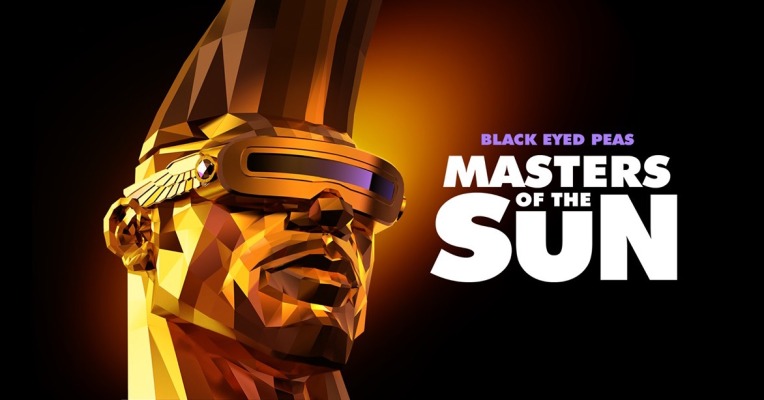“When people view VR, it’s an over-sensory experience like ‘What the fuck?!’ ” will.i.am says, wildly spinning his head around as you can see in the GIF below. That was the Black Eyed Peas’ frontman’s inspiration for creating a 90-minute VR comic book that moves at your pace and lets emotion sink in instead of battering you with visuals.
Today, “Masters of the Sun” debuts at Sundance Film Festival, with the backing of Oculus, and becomes available on Gear VR headsets. While Facebook’s VR division recently shut down its in-house Story Studio, Oculus has traded the heavy-handed control for a lighter touch, funding unique products it couldn’t conceive itself.
Masters of the Sun is part Marvel, part Dolemite, brought from augmented reality-enhanced print into VR with voices like Queen Latifah, a score by Hans Zimmer and the guidance of Stan Lee. It tells the story of regular people turned into super heroes as they try to save their community from drug-ravaged zombies… and the world from an angry alien god the Egyptians abandoned.
But what’s special is that Masters of the Sun isn’t a video game; will.i.am insisted you not be able to shoot the zombies. And it’s not a movie, racing forward no matter what direction you’re looking before you’ve processed the last scene. It’s purposefully built as a comic book, where gazing at familiar text bubbles nudges the story forward. That way if you want to let the action or romance linger under your observation, you’re in control.
“Working with people like Hans Zimmer, we had to invent music for it,” will.i.am tells me. “We had to have the music breathe and extend and be elastic at the speed at which the person experiences it. We had to invent new ways of composing.” The concept is sure to become a building block for future VR where you control the tempo.
As for the visuals, they’re far from polished, looking more like a PlayStation 1 title than today’s console or silver screen blockbusters. And the script haphazardly oscillates between silly and melodramatic. But the core message that love and peace can repair the world — the same message that winds through Black Eyed Peas’ music — is deeply woven into Masters of the Sun. “There’s a parallel from the story to reality,” says BEP’s apl.de.ap. “All of us came from poverty, and now we have the voice and the means to help out other kids like us.”
And because Masters of the Sun is longer than almost any piece of VR content available, akin to a feature film, you walk away feeling like you had a techno-spiritual meal, not a five-minute demo.
What’s good for VR is good for Oculus
We’ve evolved beyond the “train pulling into the station” phase of merely testing the potential of VR hardware. The narratives of stories like Masters of the Sun or Wolves in the Walls are starting to shine through. But for VR to develop into an artistic medium that compels people to buy headsets even if they’re not gamers, there’s more experimentation to be done.
Oculus’ willingness to fund big external creative projects that stray from the family friendly features like Lost, Dear Angelica and Emmy-winner Henry it’s produced in past years could accelerate the ecosystem in ways its in-house Story Studio couldn’t. It’s fully embracing the idea that what’s good for VR is good for Oculus.
It has offered up the resources of a giant company like Facebook to pioneering developers like Fable and eccentric artists like will.i.am, without the regressive oversight that can reign in their vision. Masters of the Sun was basically finished when Oculus came in. “We were just there to remove obstacles wherever we could,” says Oculus’ head of experiences, Colum Slevin.
The moment the Black Eyed Peas knew they’d really made something successful was when the creator of most of Marvel’s super heroes, Stan Lee, enjoyed it. “It was the equivalent of creating an amusement park and having Walt Disney come and say ‘this is amazing,’ ” BEP rapper Taboo tells me.
Rather than VR being just a temporary dalliance for Black Eyed Peas, work has already begun on part 2 of Masters of the Sun, as well as another property called Wizards and Robots. “I think this is the ultimate art form for the next 100 years,” will.i.am concludes, calling it “the jump off for a whole new way of telling stories, engaging people and giving them an escape.”
